[Original by Kazuto KANAOKA, 2020 Public Relations Intern (December 14, 2020); Translated by K. Adachi/A. Taguchi]
Hello everyone! I’m Kanaoka, a 2020 Public Relations Intern. The third interview in 2020 is with Ms. Yoshie Nimoda, who is in charge of public relations. She has a “serious and sloppy” character that both herself and others admit. I asked if it is really the case!
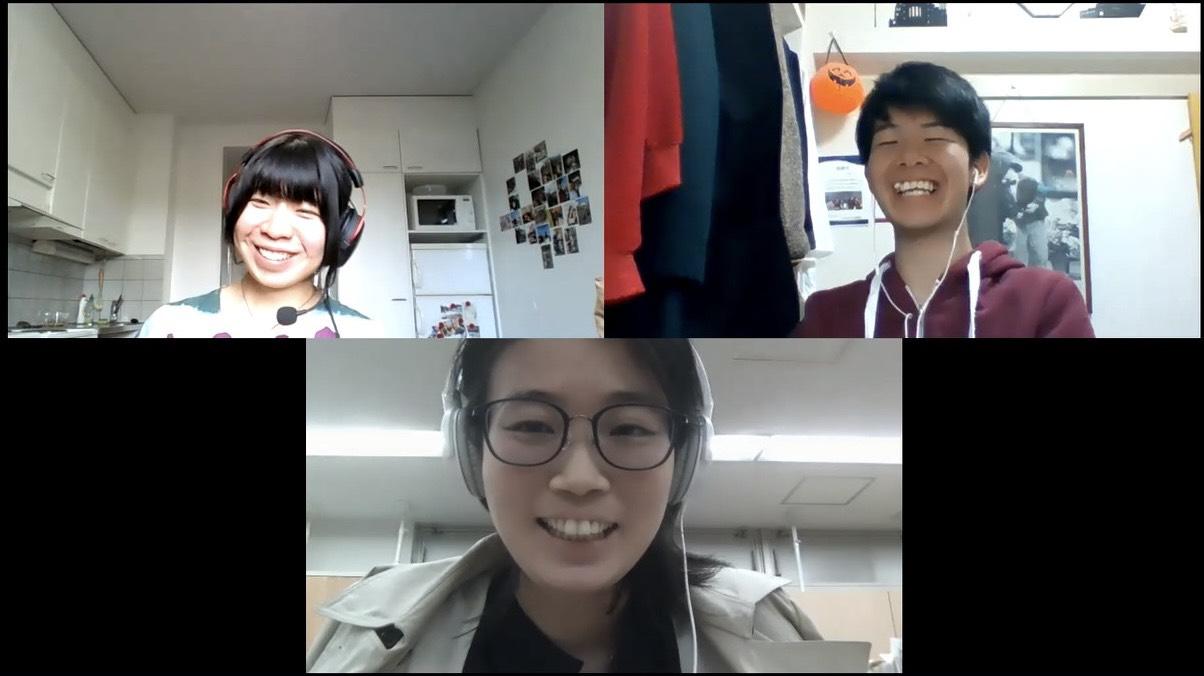
The interview has begun! It was a relaxing atmosphere from the beginning!
First, please tell us about your hobbies!
I currently enjoy learning English. In parallel with online English conversations, I attend a comprehensive face-to-face English class twice a week at a school.
Also, I like bands such as rock, and I enjoyed going to annual outdoor music festivals, but many live performances and music events were canceled this year due to the new coronavirus pandemic. So, I enjoy watching the omnibus and live streaming of festival videos held online.
Moreover, I’m thinking of going to the library and reading books. But because I rarely have time to go and buy or borrow books, I’m wondering whether I should use an e-book.
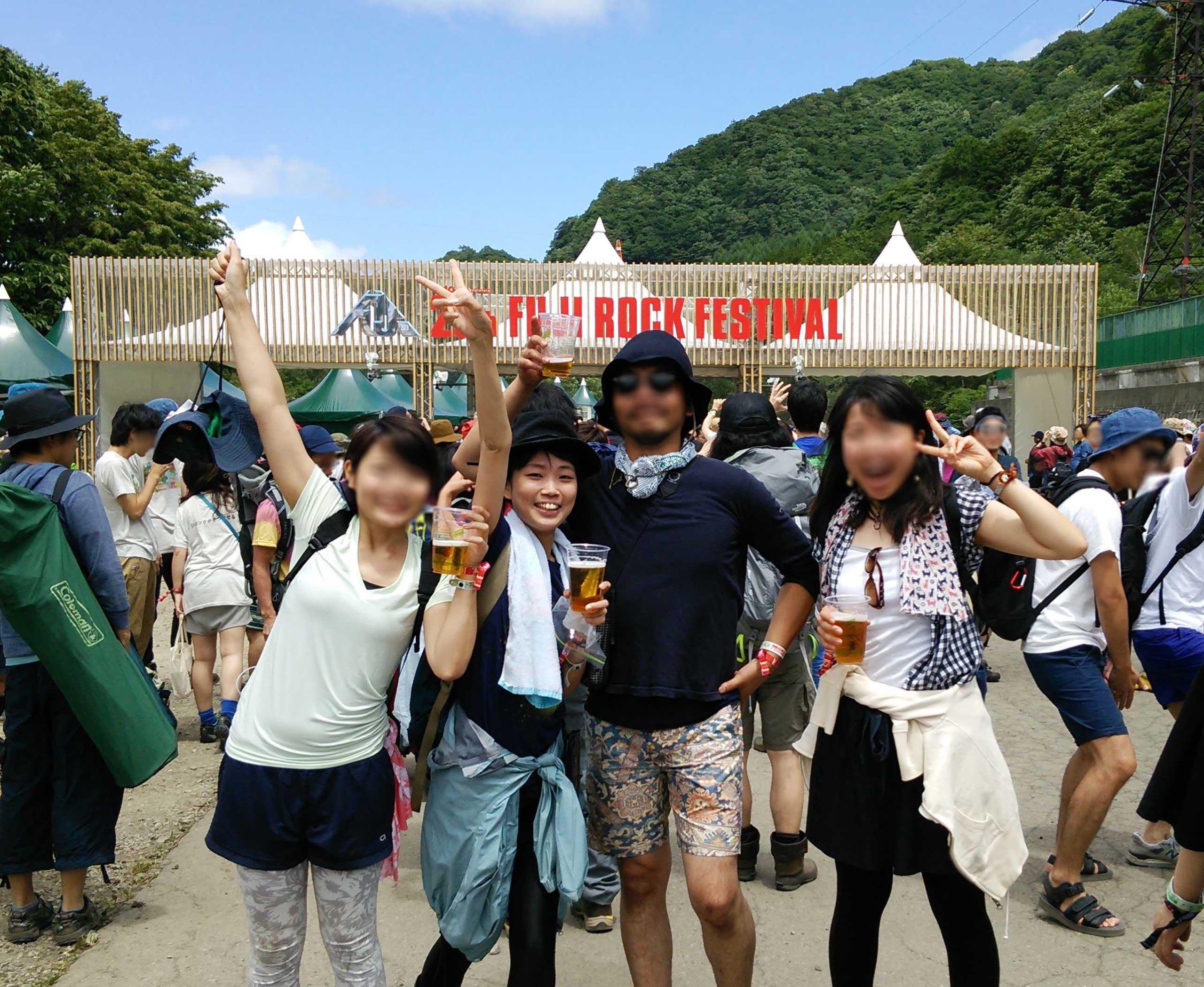
A photo in a rock festival. I hope I can go to festivals again.
What made you interested in international cooperation?
I have no specific books or experiences that made me aim for international cooperation. But looking back now, reading the book of Anne Frank and watching the movie Schindler’s List in my childhood may have influenced me. Also, when I toured Cambodia during my student days, I saw people living on the streets and felt that they were living in a different environment from us. I understood economic disparity from that experience.
I think various events have influenced me, but 9/11 made me particularly interested in international cooperation. It was a series of terrorist attacks in the United States. I was a high school student and watched shocking images on TV that splendid buildings were collapsing.
But rather than by the incident itself, my way of thinking changed when I saw the news that the US used military power against Afghanistan and Iraq. I had gloomy feelings and doubts about it. Until that time, I had no interest in political problems such as the power balance in international relations. But when I saw the news, I felt doubt about the double standards and became skeptical about the walls that unilaterally divide this side and that side based on justice, culture, and religion. Also, the Japanese Government actively affirmed and supported the Iraq war. I used to believe that Japan is a peaceful country, and the Self Defense Forces were uninvolved in the dispatch, so I was shocked that we are also on the side of the perpetrator in the war.
Please tell us your background before joining JVC!
Before being involved in international cooperation, I was working for a video production company making TV commercials and music videos for 10 years after graduating from university.
I am often asked, “What made you first work in a field unrelated to NGOs and international cooperation?” I think I had a desire to be useful and contribute to people. In the case of video production, I thought it to be a way of encouraging others mentally. In the case of international cooperation, I want to support someone else’s life a little more directly. The motivation is the same, only the way is different.
I left my previous job after marriage, considering work-life balance and the future. I worked as a clerical staff at a video company. Although I could go home on time, I couldn’t feel it was worthwhile and quit.
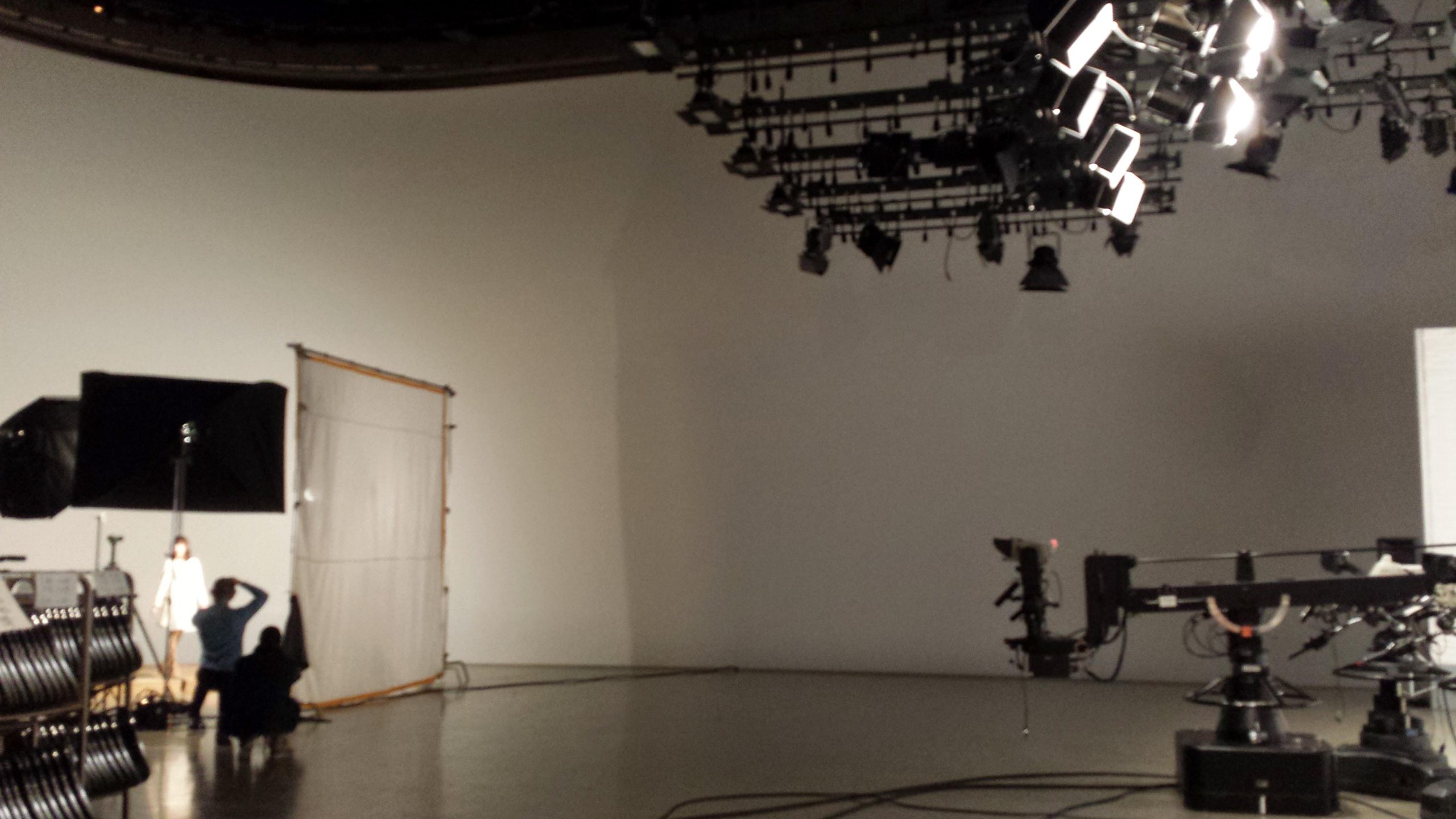
A photo at the time Ms. Nimoda is working in the video production company.
Then I thought of the profession that really made sense for me to devote my time to work. As for video production, it was my part-time job when I was a student, so I eventually decided to get a job at the video production company. But I remembered that I was also wondering whether to work for international cooperation at the time of job hunting. However, there were few recruitments for new university graduates for the international cooperation jobs, and international organizations needed requirements such as a doctoral degree and trilingual skills. So, at that time I thought that the hurdle was too high for me, and I didn’t choose it. I did not have any internships nor volunteer activities at the time I was in university.
While I was working in the film industry, I was so busy that I had no time to think about it. But now I started to seek work in the field of international cooperation in earnest.
I didn’t have the expertise and language skills mentioned above or skills such as overseas field expertise in international cooperation. So, I searched on the internet and started by participating in the orientations of organizations or helping in events as a volunteer. After that, I got experience working in several NGOs as a part-timer or an intern and gathered information. JVC was the first NGO that I contacted after searching for “international cooperation, volunteers.”
I participated in JVC’s orientation in 2015, joined a volunteer team, and started going to the office several times a month. While doing part-time jobs at several NGOs and thinking about my future, I found that JVC was most suitable. And I was hired as an intern in charge of member support in 2017. After working for a while, in December of that year, the person in charge of the calendar project moved as a local representative, and from January, I got the post and started to work as a staff.
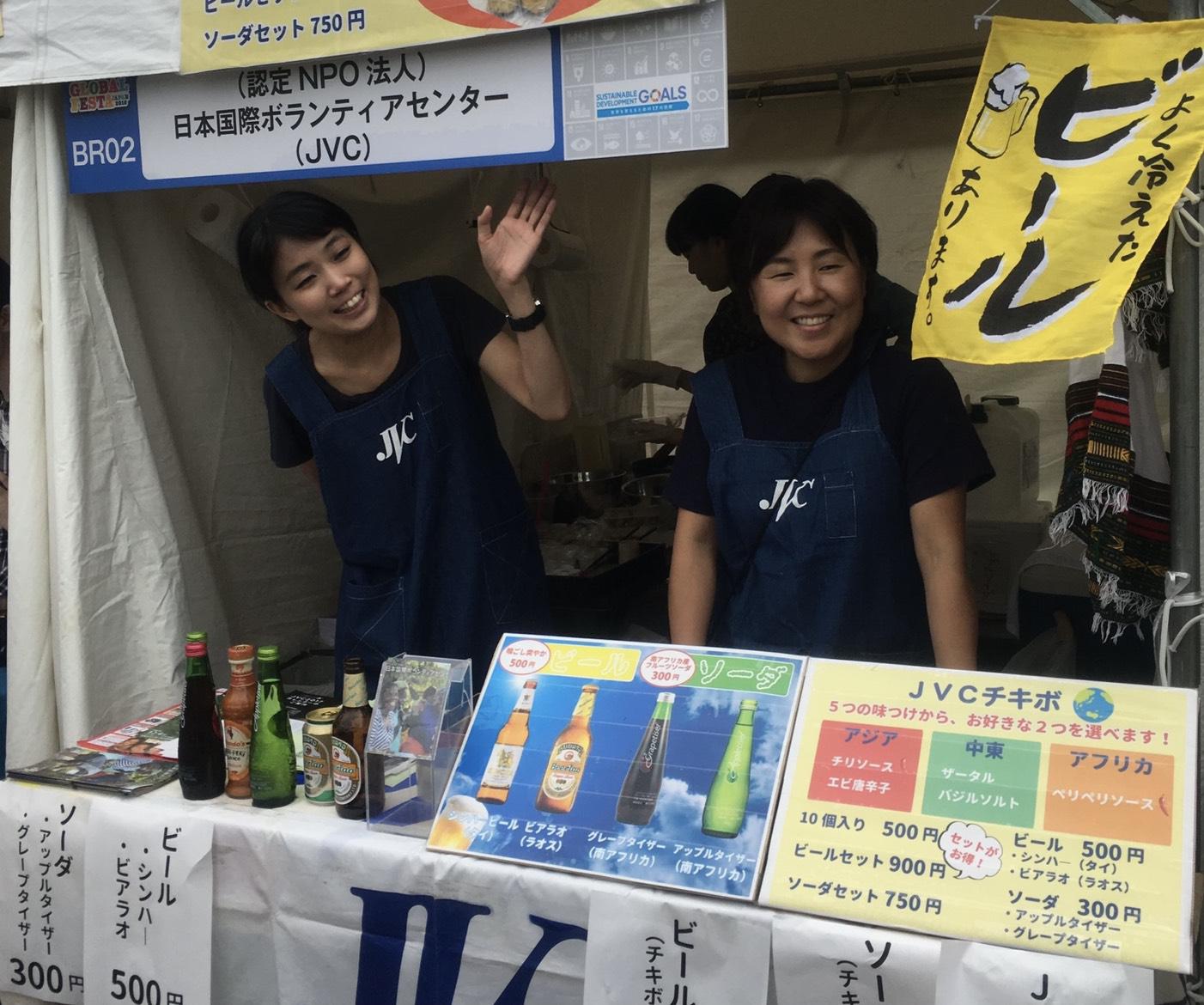
Her intern days.
What is your personality?
People say that I am serious and sloppy and that my way of thinking can be similar to an honor student. I agree with them. The reason may be because I always think that “I have to do this in such a case.” To put it another way, I am easygoing and careless with time. Anyway, I’m not a neat person. My allowance for other people is very wide and I don’t mind being a little late.
What do you value in your life?
I’m not sure whether it’s important to me, but I have a desire to live a meaningful life. Looking back up to now, my life seemed far away from a careful one, so I want to live a life that makes me say “It was fun” when I die. And I also have a desire to leave some legacy of my life.
The reason why I engaged in the video production job was because I was influenced by music videos so much and music changed my life. So, I wanted to turn to the side of being a creator, influencing and being helpful to someone else’s life.
The reason why I entered an NGO was that there are people in the world whose rights are neglected in unreasonable circumstances and I wish I could be helpful to those people as much as possible. And from there, I want to feel some kind of response. I’m still trying to figure out whether my actions in public relations are useful to people.
What was the most impressive work at JVC?
It is difficult to directly see participants’ reactions through media publication or product distribution but at the time of campaigns or events such as crowdfunding, I’m frankly glad to receive the direct reaction of participants on the spot or through SNS. It is rare to know people’s direct reaction by offering information through media, mail, or website but on some occasions, I touch the feelings of recipients through the information I offered, and I’m delighted to feel the meaning and joy of offering such information.
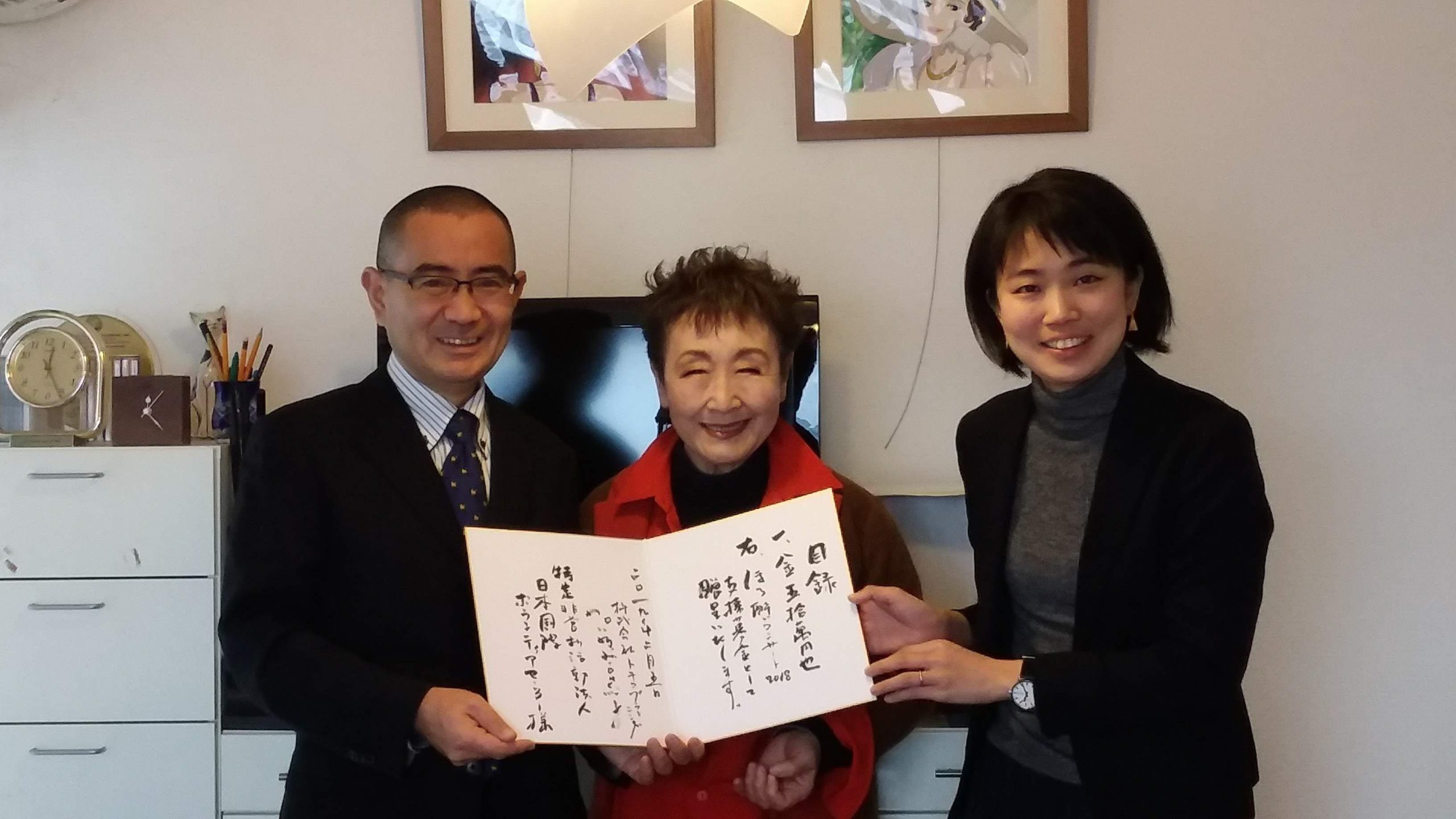
A photo after becoming a staff in the Tokyo office. She always treats us politely.
What are the future issues of public relations and what will you do?
The continued deficit is an urgent issue in our organization, so I would like to improve it. We can carry out worldwide activities thanks to everyone’s support. Unless we convey our activities, nobody will sympathize with us, so I want to keep offering information for sure.
Recently, marketing strategies are important in public relations, but JVC seems to lack strategies for offering information based on data analysis. The reason why I chose JVC as my place of work is because of the sincere attitude of the staff that “we want to value the perspective of local people, and we want to do activities that really meet the local needs.” Their passion for the local communities impressed me. Therefore, I’m currently seeking a better way of offering information not only about the situations in our activity areas but also about the staff’s thoughts.
I don’t think that all the people in the world should be engaged in international cooperation, but there is a French saying, noblesse oblige. It means that people with fortune, power, and social status bear social responsibility. I wish that people have responsibility for the whole society and naturally take actions throughout the world. Of course, there are many people who find it difficult to directly engage in actual support and donation because of their circumstances, but if you try to find it, there are quite a lot of things that you can do without straining yourself. For example, you can live an environment-friendly life by reducing garbage, you can buy things in fair trade, you can speak to a person in need in the city, and so on. I hope the people in the world naturally act for other people. We offer messages to think about distant issues as also your own. People are often in trouble not because they wished for it but because they were forced. They cannot escape even through their self-help efforts.
Besides international cooperation, I would like to continue public relations, so that people can take the first step to consider other people through their interest in environmental issues, raising children, nursing issues, and so on. I hope such values will spread to society.
After the interview
I was particularly impressed with Ms. Nimoda’s words, “The way is different, but the motivation is the same.” Even if your occupation is not directly related to international cooperation, if you have the motivation, you can engage in international cooperation as much as you can. I feel like I have relaxed my shoulders a little.
The next staff interview will be with Mr. Shigeru Kimura who is in charge of public relations and fundraising. Ms. Nimoda drew his portrait as customary! Mr. Kimura has a calm and gentle impression. What kind of interview can we hear? You can count on it!
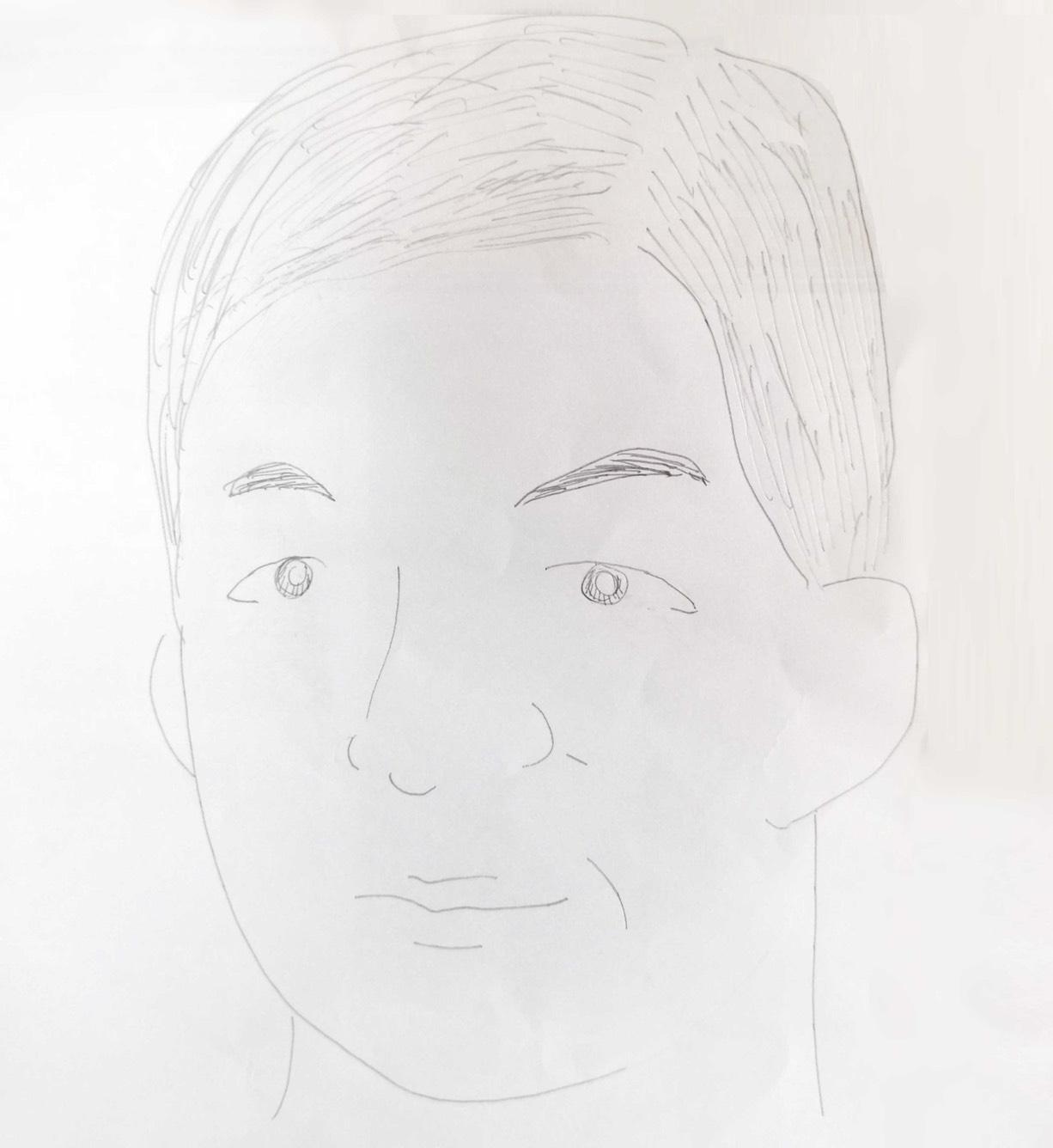
She drew a portrait of Mr. Kimura!
